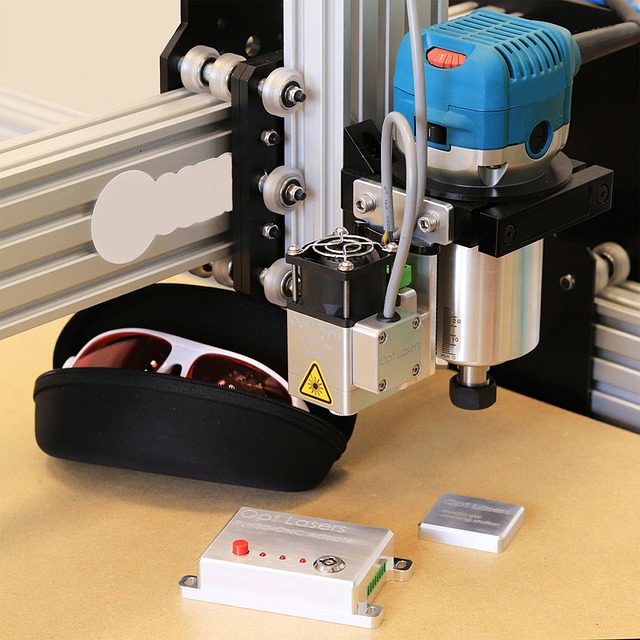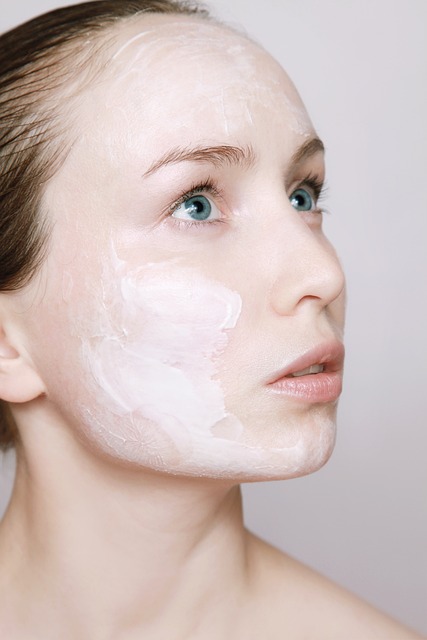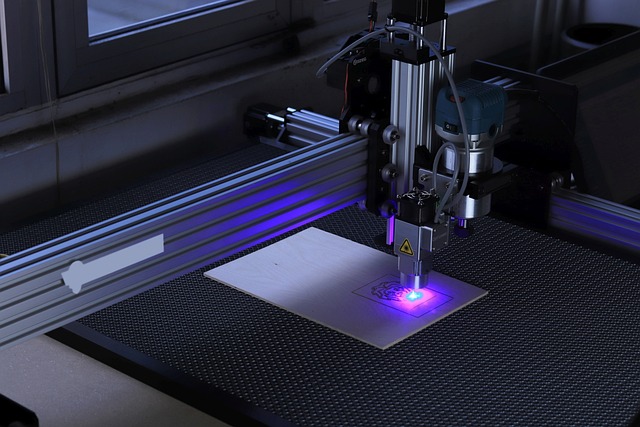Laser skin treatments have revolutionized skincare by offering precise, non-invasive solutions for various aesthetic issues. Different laser types target specific concerns, such as collagen production, pigmented spots, and facial contours. Customization is key, with advanced technologies allowing practitioners to tailor treatments based on skin type, tone, and condition. Common applications include hair removal, tattoo fading, acne scars, wrinkles, hyperpigmentation, and anti-aging. Choosing a reputable clinic and consulting experienced dermatologists ensures safety and effectiveness. Future trends focus on personalized therapy using AI, gentle fractional lasers, and non-invasive procedures to meet increasing consumer demand for mild yet effective treatments.
“Discover the transformative power of customized laser treatments, a revolutionary approach to skincare. This comprehensive guide explores the intricacies of laser technology and its diverse applications. From understanding the science behind it to uncovering various treatment types, we delve into the benefits, safety aspects, and patient experiences.
Learn how specialized clinics are empowering individuals to achieve their skin goals. Get ready to explore the future of personalized laser skincare, where innovation meets natural rejuvenation.”
Understanding Laser Skin Treatments: A Comprehensive Overview

Laser skin treatments have revolutionized the skincare industry, offering a precise and non-invasive approach to various aesthetic concerns. These treatments utilize concentrated beams of light to interact with different layers of the skin, stimulating collagen production, breaking down pigmented spots, or reshaping facial contours. The key lies in their customization—each treatment is tailored to address specific skin issues and achieve desired outcomes.
Understanding laser skin treatments involves grasping how different types of lasers target unique aspects of skin health. For example, ablative lasers remove surface layers for resurfacing, while non-ablative lasers stimulate collagen renewal without causing significant skin damage. Advanced technologies now allow practitioners to personalize treatments based on skin type, tone, and condition, ensuring safe and effective results.
The Science Behind Laser Technology for Skincare

Laser technology has revolutionized skincare, offering precise and targeted treatments for various skin concerns. The science behind laser skin treatments involves using concentrated light energy to interact with different layers of the skin. Each laser is designed to emit a specific wavelength, allowing for targeted treatments tailored to address specific skin issues, such as wrinkles, hyperpigmentation, or acne scars.
When a laser beam is applied to the skin, it penetrates the surface layers and heats up specific chromophores—molecules that absorb light—triggering various biological responses. For example, carbon dioxide (CO2) lasers stimulate collagen production by creating controlled damage to the skin, encouraging the body’s natural healing process to produce more of this protein crucial for skin elasticity. In contrast, lighter lasers like those using pulsed dye light (PDL) target specific pigmented cells, making them effective for treating age spots and sun damage.
Types of Customized Laser Treatments Available

In the realm of laser skin treatments, customization is key to achieving optimal results tailored to individual needs. Among the diverse range of options available, fractional laser resurfacing stands out for its ability to target specific skin concerns while minimizing downtime. This advanced technique employs tiny lasers to precisely reshape and renew the skin’s surface, addressing issues like fine lines, wrinkles, and scars.
Another notable treatment is the use of pulsed dye laser (PDL) for conditions like rosacea and hyperpigmentation. By targeting specific pigmented cells, PDL helps to even out skin tone and reduce redness. For those seeking hair removal solutions, advanced laser technologies offer safe and effective permanent results. These treatments utilize light energy to destroy hair follicles at the root, leading to smoother, hair-free skin.
Benefits and Applications of Laser Skin Therapies

Laser skin therapies offer a multitude of benefits for various skin conditions and cosmetic enhancements. One of the key advantages is their precision; lasers can be meticulously controlled to target specific areas, allowing for highly effective treatments with minimal side effects. This technology is particularly beneficial for conditions like acne scars, wrinkles, and hyperpigmentation, as it promotes collagen production and cell regeneration while breaking down unwanted pigmentation.
The applications of laser skin treatments are vast. They can be used for hair removal, tattoo fading, and even the treatment of certain types of skin cancer. In the cosmetic realm, lasers can enhance the appearance of fine lines and wrinkles, improve skin texture, and provide a more youthful glow. Additionally, they are non-invasive, making them an appealing option for those seeking a less drastic alternative to surgical procedures.
Safety and Effectiveness Considerations

When considering laser skin treatments, safety and effectiveness should be at the forefront of your mind. These advanced procedures utilize concentrated light energy to target specific skin concerns, offering a precise and tailored approach to skincare. However, as with any medical procedure, there are risks and considerations.
Laser treatments have been extensively studied, and when performed by qualified professionals using approved equipment, they are generally safe and effective. Yet, potential side effects like temporary redness, swelling, or changes in skin pigmentation are not unheard of. It’s crucial to choose a reputable clinic and consult with an experienced dermatologist who can assess your unique needs and provide guidance on post-treatment care.
Choosing the Right Clinic and Professional for Your Needs

Selecting the ideal clinic and expert for your laser skin treatments is a pivotal decision that can greatly impact your overall experience and results. It’s crucial to start by researching reputable facilities with experienced professionals who specialize in various laser technologies. Look for clinics offering a comprehensive range of services, from targeted acne treatments to anti-aging solutions, ensuring they align with your specific needs.
Consider factors like certifications, reviews, and the technician’s expertise. A well-regarded clinic should have satisfied clients sharing positive feedback, indicating consistent, safe, and effective procedures. Additionally, inquiring about their consultation process is essential; a thorough initial assessment can help determine if the clinic understands your goals and provides personalized recommendations for the best laser skin treatments.
Patient Testimonials and Real-Life Results

Patient testimonials and real-life results are a testament to the effectiveness of laser skin treatments. Individuals who have undergone these procedures often share their positive experiences, highlighting significant improvements in skin texture, tone, and overall appearance. These firsthand accounts provide valuable insights into the transformative power of lasers, offering a clear picture of what can be achieved.
Many patients report noticing a substantial difference within just a few sessions. Common comments include reduced fine lines and wrinkles, improved skin elasticity, and a more even skin tone. Such remarkable outcomes not only boost self-confidence but also serve as a powerful incentive for others considering laser skin treatments.
Future Trends in Personalized Laser Skincare

The future of personalized laser skincare looks promising, with advancements in technology driving innovative treatments. One prominent trend is the integration of artificial intelligence (AI) and machine learning algorithms to analyze skin data, allowing for highly customized laser therapies. These AI-driven systems can identify specific skin concerns, such as acne scars, wrinkles, or pigmentations, and tailor laser wavelengths, intensities, and patterns accordingly. This precision ensures optimal results while minimizing side effects.
Additionally, there’s a growing emphasis on non-invasive, gentle laser treatments that stimulate the skin’s natural healing processes. Fractional lasers, for instance, create micro-injuries to trigger collagen production without extensive downtime. As consumer demand for effective yet mild procedures continues to rise, future developments in laser skincare will likely focus on enhancing these gentle approaches, making personalized laser treatments more accessible and appealing to a broader range of individuals.
